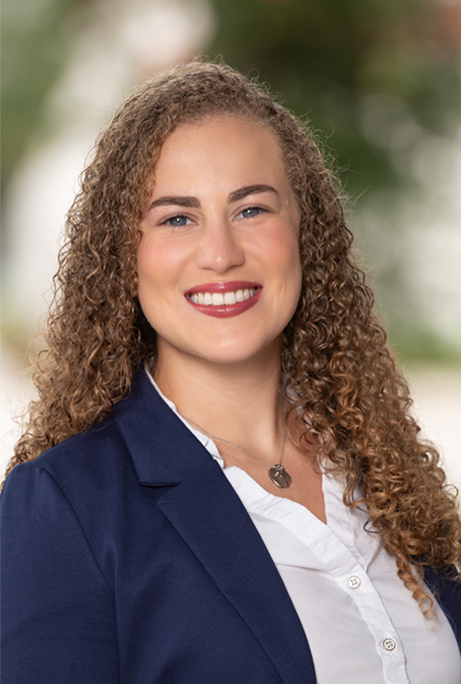Florida DUI Jury Instructions
If you want a basic understanding of DUI laws in Florida, look no further than the Florida’s standard jury instructions in DUI cases.
The judge in any DUI case will read these standard jury instructions (or some variation of these jury instructions) to the jury immediately before they go back into the jury room to deliberate.
The jury is usually given a written copy of these instructions that they can take with them back to the jury room to refer to during their deliberations.
Often, the jurors will read these instructions over and over again arguing about what a certain word might mean in the context of that particular case.
If you have been charged with drunk driving, contact an experienced Tampa DUI Attorney at the Sammis Law Firm to discuss the particular facts of your case.
The Jury Instructions in Florida DUI Cases
MISDEMEANOR DUI
Driving Under the Influence of Drugs or Alcohol (DUI) in Florida under § 316.193(1)
To prove the crime of Driving under the Influence (DUI), the State must prove the following two elements beyond a reasonable doubt:
1. [The Defendant] drove or was in actual physical control of a vehicle.
2. While driving or in actual physical control of the vehicle, [the Defendant]
Give 2a or b or both as applicable.
a. was under the influence of [alcoholic beverages] [a chemical substance] [a controlled substance] to the extent that [his] [her] normal faculties were impaired.
b. had a [blood] [breath]-alcohol level of .08 or more grams of alcohol per [100 milliliters of blood] [210 liters of breath].
Enhanced Penalties for Minor in the Vehicle or Way Over the Legal Limit (+.15)
Give if applicable. (Offenses committed prior to October 1, 2008, alcohol level of .20 or higher.)
If you find the defendant guilty of Driving under the Influence, you must also determine whether the State has proven beyond a reasonable doubt whether:
a. the defendant had a [blood] [breath]-alcohol level of .15 or higher while driving or in actual physical control of the vehicle.
b. the defendant was accompanied in the vehicle by a person under the age of 18 years at the time of the driving under the influence.
Definitions in Florida DUI Cases
Vehicle – every device, in, upon or by which any person or property is, or may be, transported or drawn upon a highway, except devices used exclusively upon stationary rails or tracks.
Normal faculties – include but are not limited to the ability to see, hear, walk, talk, judge distances, drive an automobile, make judgments, act in emergencies and, in general, to normally perform the many mental and physical acts of our daily lives.
Actual physical control of a vehicle – the defendant must be physically in or on the vehicle and have the capability to operate the vehicle, regardless of whether [he] [she] is actually operating the vehicle at the time.
Alcoholic beverages are considered to be substances of any kind and description which contain alcohol.
Florida DUI Impairment Presumptions and the Legal Limit
When appropriate, give one or more of the following instructions on the presumptions of impairment established by § 316.1934(2)(a), (2)(b), and (2)(c), Fla. Stat.
1. If you find from the evidence that while driving or in actual physical control of a motor vehicle, the defendant had a blood or breath-alcohol level of .05 or less, you shall presume that the defendant was not under the influence of alcoholic beverages to the extent that [his] [her] normal faculties were impaired; but this presumption may be overcome by other evidence demonstrating that the defendant was under the influence of alcoholic beverages to the extent that [his] [her] normal faculties were impaired.
2. If you find from the evidence that while driving or in actual physical control of a motor vehicle, the defendant had a blood or breath-alcohol level in excess of .05 but less than .08, that fact does not give rise to any presumption that the defendant was or was not under the influence of alcoholic beverages to the extent that [his] [her] normal faculties were impaired. In such cases, you may consider that evidence along with other evidence in determining whether the defendant was under the influence of alcoholic beverages to the extent that [his] [her] normal faculties were impaired.
3. If you find from the evidence that while driving or in actual physical control of a motor vehicle, the defendant had a blood or breath-alcohol level of .08 or more, that evidence would be sufficient by itself to establish that the defendant was under the influence of alcoholic beverages to the extent that [his] [her] normal faculties were impaired. But this evidence may be contradicted or rebutted by other evidence demonstrating that the defendant was not under the influence of alcoholic beverages to the extent that [his] [her] normal faculties were impaired.
Defense of Inoperability
It is a defense to the charge of Driving under the Influence if at the time of the alleged offense, the vehicle was inoperable. However, it is not a defense if the defendant was driving under the influence before the vehicle became inoperable. Therefore, if you are not convinced beyond a reasonable doubt that the vehicle was operable at the time of the alleged offense, you should find the defendant not guilty. However, if you are convinced that the vehicle was operable at the time of the alleged offense, then you should find the defendant guilty, if all the other elements of the charge have been proved beyond a reasonable doubt.
FELONY DUI BASED ON the number of prior DUI convictions under §316.193(2)(b)1 or § 316.193(2)(b)3
The first set of instructions the jury will be given is provided above. If the jury finds the Defendant guilty of DUI, then the following instructions can be given.
Give as applicable if the jury finds the defendant guilty of Driving under the Influence. Note: BUI and out-of-state DUI/DWI convictions count as prior convictions. See §316.193(6)(k), Fla. Stat. See State v. Harbaugh, 754 So. 2d 691 (Fla. 2000).
Now that you have found the defendant guilty of Driving under the Influence, you must further determine whether the State has proven beyond a reasonable doubt whether:
a. the defendant was previously convicted two times of Driving under the Influence and one of the prior Driving Under the Influence convictions took place within 10 years of the Driving Under the Influence that you found the defendant committed.
b. the defendant was previously convicted three times of Driving under the Influence.
Give if applicable. Florida Statute 316.193(12)
If the records of the Department of Highway Safety and Motor Vehicles show that the defendant has been previously convicted of Driving under the Influence, you may conclude that the State has established that prior Driving under the Influence conviction. However, such evidence may be contradicted or rebutted by other evidence. Accordingly, this inference may be considered along with any other evidence in deciding whether the defendant has a prior Driving under the Influence conviction.
Florida’s Serious Bodily Injury Felony DUI under § 316.193(3)(a)(b)(c)2
To prove the crime of Driving under the Influence Causing Serious Bodily Injury, the State must prove the two elements required for a DUI and a third element:
3. As a result of operating the vehicle, (defendant) caused or contributed to causing serious bodily injury to (victim).
Definition of Serious Bodily Injury in Florida DUI Cases
Serious bodily injury – a physical condition that creates a substantial risk of death, serious personal disfigurement, or protracted loss or impairment of the function of any bodily member or organ.
2 comments
Leave a Reply Cancel reply
Free Consultation
Submit this form to request a free and confidential consultation with one of our attorneys.
Our Office Locations
Tampa Office:
Sammis Law Firm, P.A.
1005 N. Marion St.
Tampa, FL 33602
(813) 250-0200
New Port Richey Office:
Sammis Law Firm, P.A.
7509 Little Rd.
New Port Richey, FL 34654
(727) 807-6392
Clearwater Office:
Sammis Law Firm, P.A.
14010 Roosevelt Blvd. #701
Clearwater, FL 33762
(727) 210-7004








Client plea to DUI with over .15 blow. Judge order interlock device. Are ther standard jury instructions on a violation of DL restruction “P” interlock device.
No, as far as I know, there are no standard jury instructions for driving in violation of the ignition interlock device restriction.